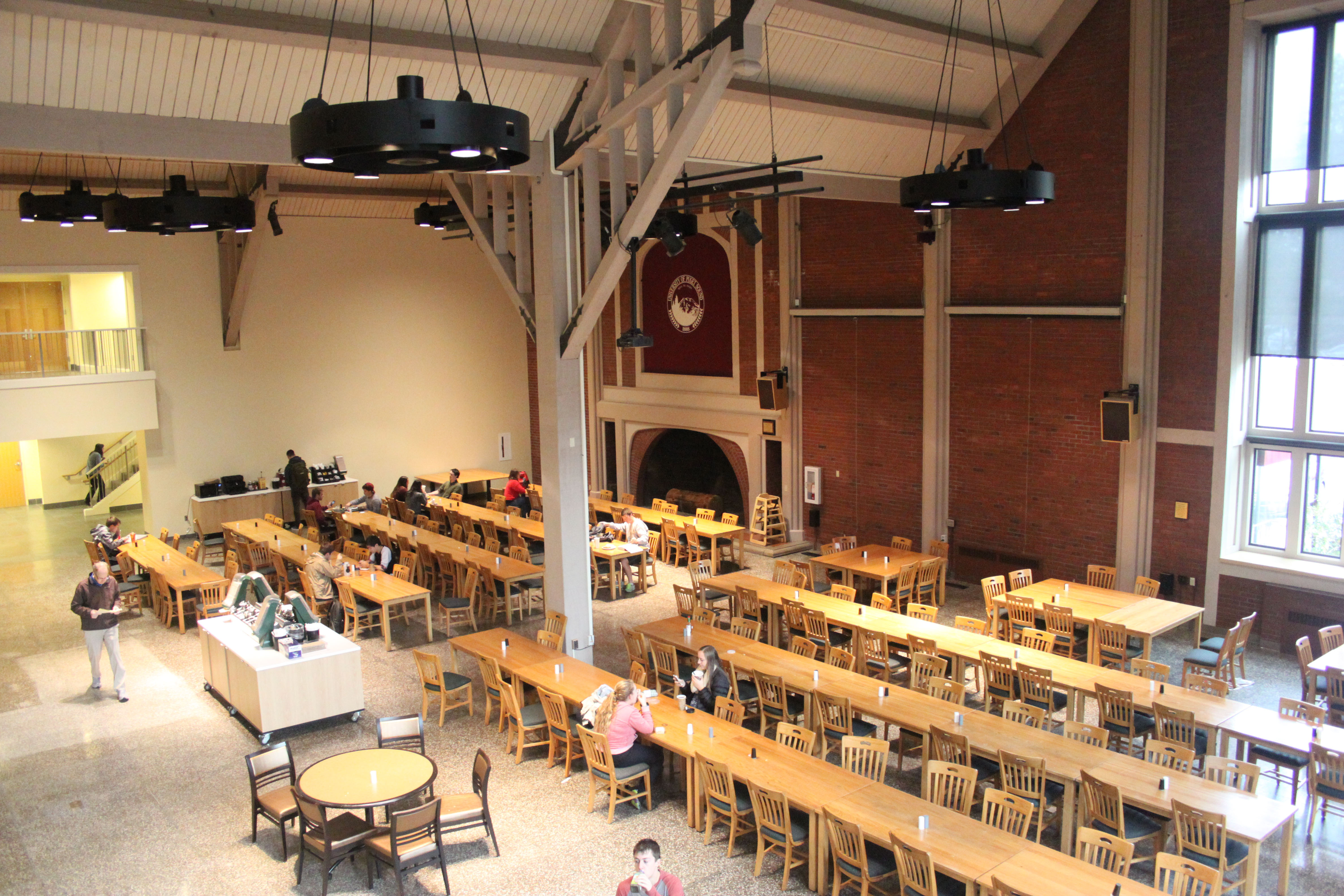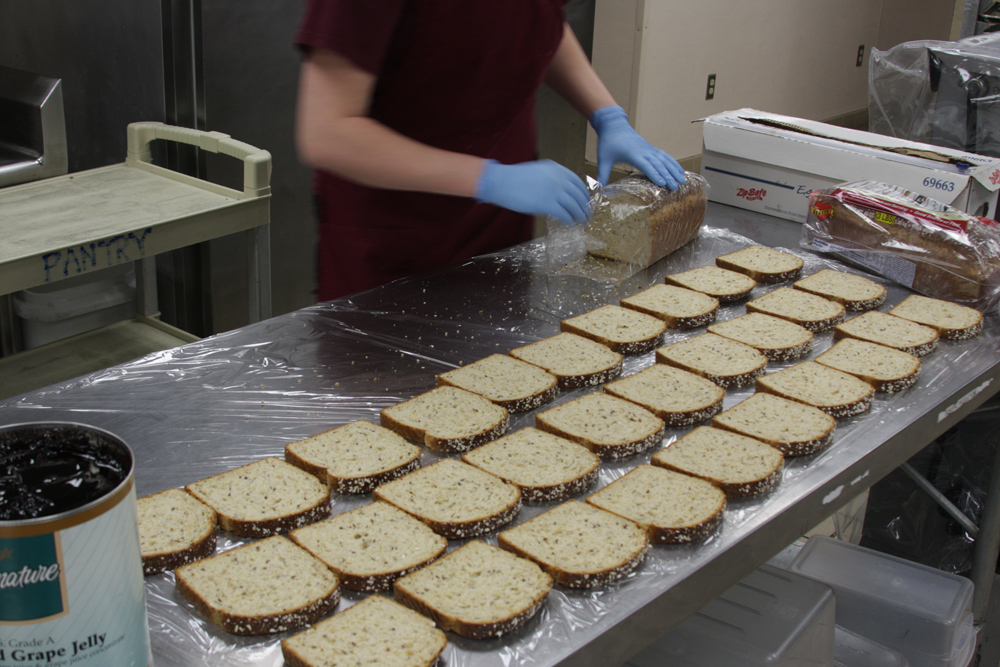
In the midst of debates over politics, the economy and the meaning of life, the one thing I think we can all agree on is that food remains of utmost importance. With that said, it is incredibly frustrating for someone with dietary restrictions to go to the S.U.B. and be confronted with nothing to eat.
That may seem like an overly dramatic proclamation at first glance, for there is much to be said in favor of the S.U.B.’s advances in allergy awareness. In contrast to most schools across the nation, there are many options for students with various food allergies, and the allergen keys displayed at each counter are extremely helpful.
The problem lies in the consistency with which the promise of such options is fulfilled.
I am a gluten-intolerant, lactose-intolerant vegan. In other words, I can’t eat much.
I’ve found that in the mornings, the Vegetarian/Vegan line is rarely open. I visit the line some days only to find that none of the entrées are edible for me. It is a common occurrence that none of the entrées at this line are edible for me, and that gluten-free bagels, hamburger buns, and the Deli’s vegan field roast are not taken out of the freezer to thaw or are left out to become stale. At the Latin American counter the corn tortillas are usually not fresh, and sometimes entirely unavailable.
Some days, the allergen lists aren’t even displayed by certain food counters. In one instance, I went to the Vegetarian & Co. counter for dinner and asked what was both vegan and gluten free. The girl behind the counter said she’d go check. Two minutes later she came back with an apologetic look on her face and said, “We’re not sure.”
Needless to say, I was a little upset. How can the staff that prepares our food be “not sure” of what’s in it? Annoyed and hungry, I delved deeper. Freshman Catherine Durkee, also gluten-free and completely dairy-intolerant, has worked closely with the dining staff about these same concerns. Durkee set up a full week of menu reviews with Melissa Flood, the Assistant Director of Food Services. During these meetings, Durkee expressed her frustration at the often scarce selection of hypoallergenic meals.
“When I had talked to the dining services people before arriving on campus I was assured that there would be absolutely no issues with me being able to get a well-balanced meal with variety,” Durkee said.
The promise of variety seems to be a central issue. Students like Durkee and I are perfectly aware of the salad bar’s existence, but not all vegans are satisfied with salad at every meal. Durkee, too, was disappointed by a 15 minute wait at the Vegetarian line to find that the service staff had no idea what she could eat.
“The staff that serve food seem to want to try and assist you but are many times unable to do so…There seems to be a major lapse in communication between the behind-the-scenes [sic] staff and those actually working in the kitchen,” she said. Durkee herself is not a vegetarian, but has been forced to purchase food from the line because much of the meat prepared in the kitchen contains fillers with wheat gluten as a chief ingredient. The same can be said for the majority of meat substitutes sold at the Vegetarian/ Vegan counter.
As she has come to find, it is difficult to construct a balanced meal without the protein from meat dishes. For me, tofu and beans are a perfectly suitable answer. The problem is that the salad bar features chicken strips and multiple types of cheeses more often than plain tofu. The tofu side dishes are often neither vegan nor gluten-free, and almost never both. A single scoop of black beans at the Latin American line is hardly substantial enough to stave off hunger, and, petty or not, I feel like I shouldn’t have to pay extra for a second scoop to be satisfied.
Which brings me to another major frustration—price. Let us consider a basic example: cookies. The S.U.B. carries a brand of gluten-free and vegan baked goods called Flying Apron. A chocolate chip cookie from Flying Apron will cost $1.45 in Dining Dollars or $2.25 in hard cash. My roommate’s giant burritos generally cost less than that.
The real kicker, however, is that a regular cookie costs $0.25 in Dining Dollars, or a whopping $0.50 in regular money. With the less-than-impressive turnout of would-be delicious edible food for me at the vegan section, I turn to salads most nights. This was tolerable until a phone call from my father telling me I had somehow gone through two-thirds of my meal plan points. I pay for salads by the ounce, and it takes a hell of a lot more spinach to fill a person than it does carbohydrates and protein.
You wouldn’t expect a student with no food allergies to eat the same way I do. Durkee echoed the sentiments of many students, “I do realize how difficult it must be to account for the many allergies that people have nowadays, however gluten and dairy are major ones that can lead to improper nutrition if not adequately dealt with.” So is it really fair to penalize myself or other students by lessening our options? It’s certainly food for thought.



